Illegal Pesticides
Is what you are buying, storing and using legal?
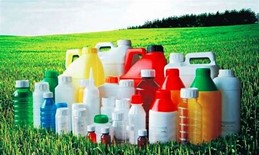 All pesticides in the UK undergo rigorous testing before being registered and controlled by the Chemical Regulations Directorate (CRD), a division of the Health & Safety Executive. Each product is given an individual identification, MAPP number (Ministerially Approved Pesticide Product). Each pesticide is also given a “field of use” and is only allowed to be used in this area.
All pesticides in the UK undergo rigorous testing before being registered and controlled by the Chemical Regulations Directorate (CRD), a division of the Health & Safety Executive. Each product is given an individual identification, MAPP number (Ministerially Approved Pesticide Product). Each pesticide is also given a “field of use” and is only allowed to be used in this area.
For example, a growth regulator that is permitted for use when growing wheat may have exactly the same active ingredient as
another growth regulator that is approved for use in Managed Amenity Turf but it is illegal to use them for the unlicensed field of use. Pesticides are also registered for Professional or Amateur use - it is illegal to use an amateur pesticide on a professional site and vice versa.
Fake or copy pesticides
Many illegal pesticides make it onto our market because of the vast profits that can be made. The active ingredients are imported into the UK or Europe where they are formulated, packaged and labelled (often forgeries) then sold through a chain of dubious suppliers. These pesticides have not been tested and may cause devastating effects to the environment or public health.
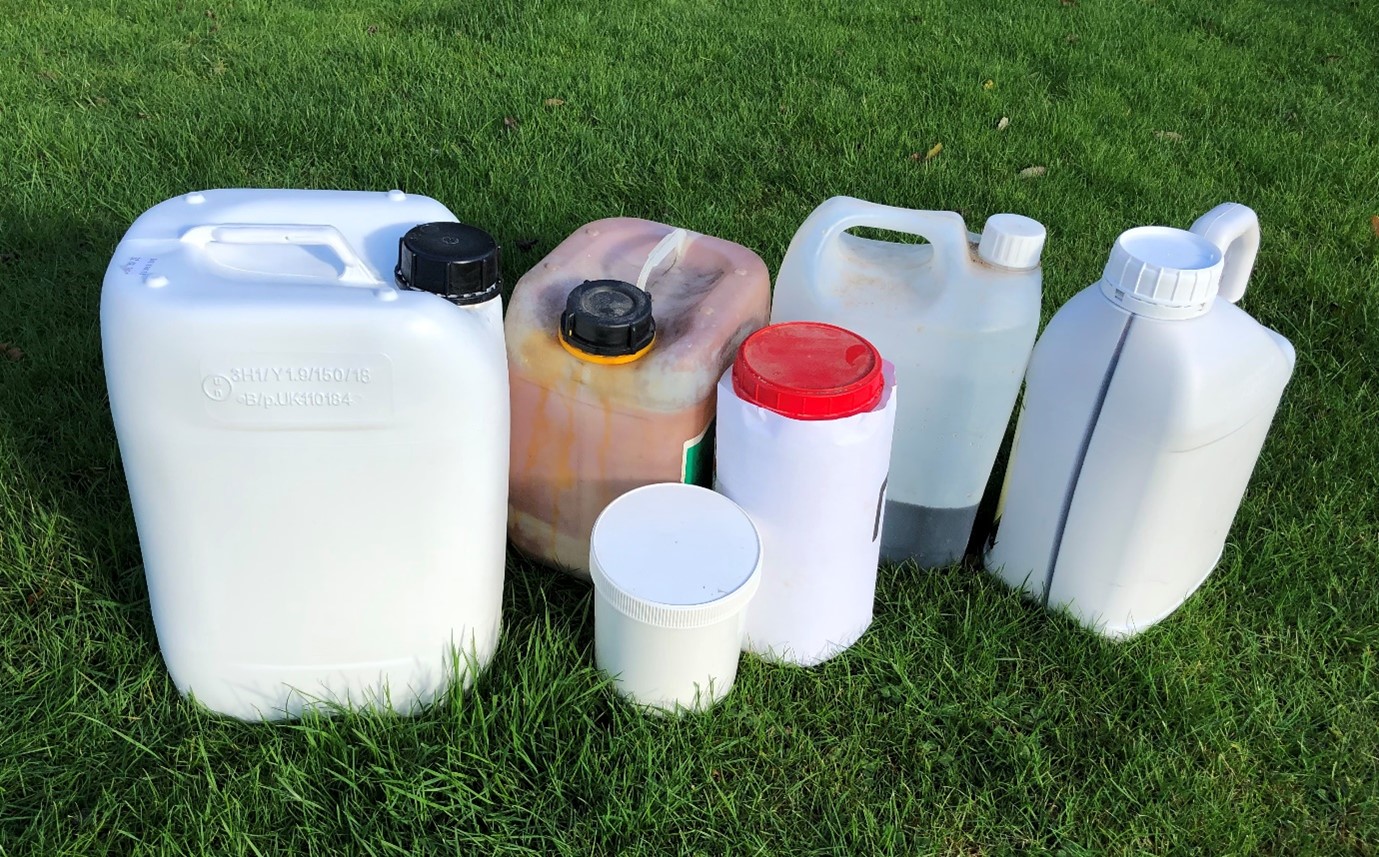 Purchasing an illegal pesticide could:
Purchasing an illegal pesticide could:
Endanger the health of the operator.
Endanger visitors to your site.
Harm the environment.
Endanger wildlife.
Have negative effects on your crop.
Put you at risk of prosecution.
Would invalidate any insurance.
Storage
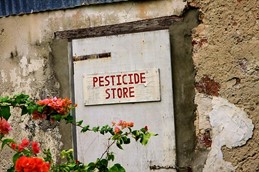 Once a pesticide leaves an authorised manufacturer it should be placed in a distributors BASIS registered store before being sold and dispatched to the customer.
Once a pesticide leaves an authorised manufacturer it should be placed in a distributors BASIS registered store before being sold and dispatched to the customer.
Does your supplier have a BASIS registered store with a BASIS registered storekeeper?
Are the pesticides you are buying being held illegally in someone’s garage or shed somewhere?
Is it kept frost free (frost can degrade some pesticides rendering them useless)?
Check the manufacture date on the container, how old are the pesticides?
Is the supplier delivering to you with a trained and licenced delivery driver or are they delivering it from the back of their truck? The sale and supply of agrochemicals from vehicles, other than by pre-arranged deliveries, must be made under the direct supervision of a BASIS certificated salesman.
Once you receive your pesticides and have checked them, they should be placed immediately into a bunded chemical store and the store records updated. You must only store approved pesticides in the original container with the approved product label.
Do you know what's in your chemical store?
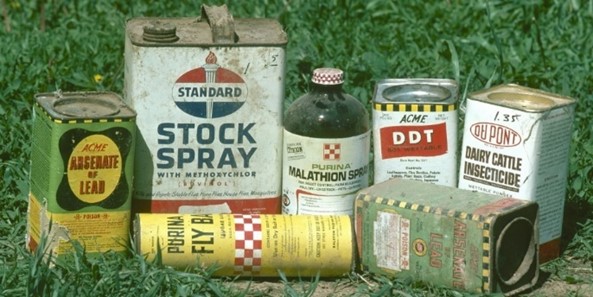 Do you know what's in your chemical store?
Do you know what's in your chemical store?
You should carry out a regular audit of your pesticide store. Check what you have, and in what volumes. A list should be kept in the store and a copy kept away from the store, so that records are available for the fire service or environment agency in case of an emergency. It is illegal to store or use unapproved pesticides, so it is important to ensure that all pesticides in your store are approved. Many products are losing their approval, check the
approval status of yours regularly. Collier Turf Care’s BASIS registered advisors can help identify those that can no longer be used legally. Any pesticide present that has had it authority revoked or is not authorised should be labelled and immediate arrangements made for it safe disposal by a licenced contractor.
A list of these contractors can be found at:
Waste Management - Directory (wastedirectory.org.uk)
For more advice on pesticide and pesticide waste disposal visit:
Pesticide Disposal | Safely dispose of chemicals (collier-turf-care.co.uk)
How can you avoid buying illegal pesticides?
Only buy known products from reputable suppliers.
Question any unrealistic prices of special offers.
When the product arrives, check the label details against what you ordered.
Check that the packaging is correct and has not been tampered with.
Does it display the correct MAPP number?
Check the wording on the label, is the language correct? Does it look genuine?
Does the pesticide look correct, colour, viscosity, and odour?
If you have a suspicion that you may have been supplied with an illegal pesticide, report this to the DEFRA helpline 08459 33 55 77
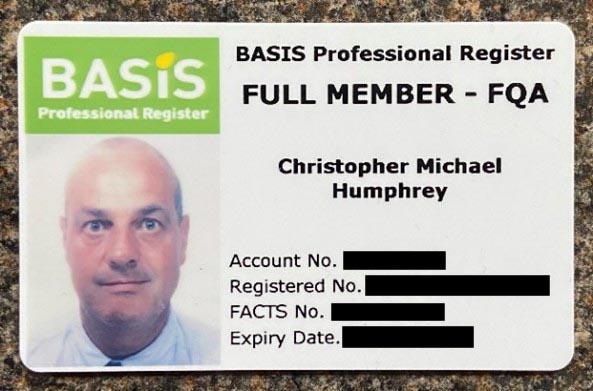 By law, everyone who sells pesticides must have a certificate of competence or be working under the direct supervision of someone with a certificate of competence (they should gain their BASIS qualification of competence within 3 years). After gaining the certificate for competence, the advisor should then complete a set amount of Continued Professional Development (CPD) each year to be a member of the Professional Register.
By law, everyone who sells pesticides must have a certificate of competence or be working under the direct supervision of someone with a certificate of competence (they should gain their BASIS qualification of competence within 3 years). After gaining the certificate for competence, the advisor should then complete a set amount of Continued Professional Development (CPD) each year to be a member of the Professional Register.
Is your advisor qualified?
Are they on the Professional register?
Are they up to date?
Ask to see their BASIS card, check they are a full member and check the expiry date.
For qualified advice, or a free audit of your chemical safe, contact your local Collier Turf Care BASIS qualified advisor, or our office on 01328 700600.